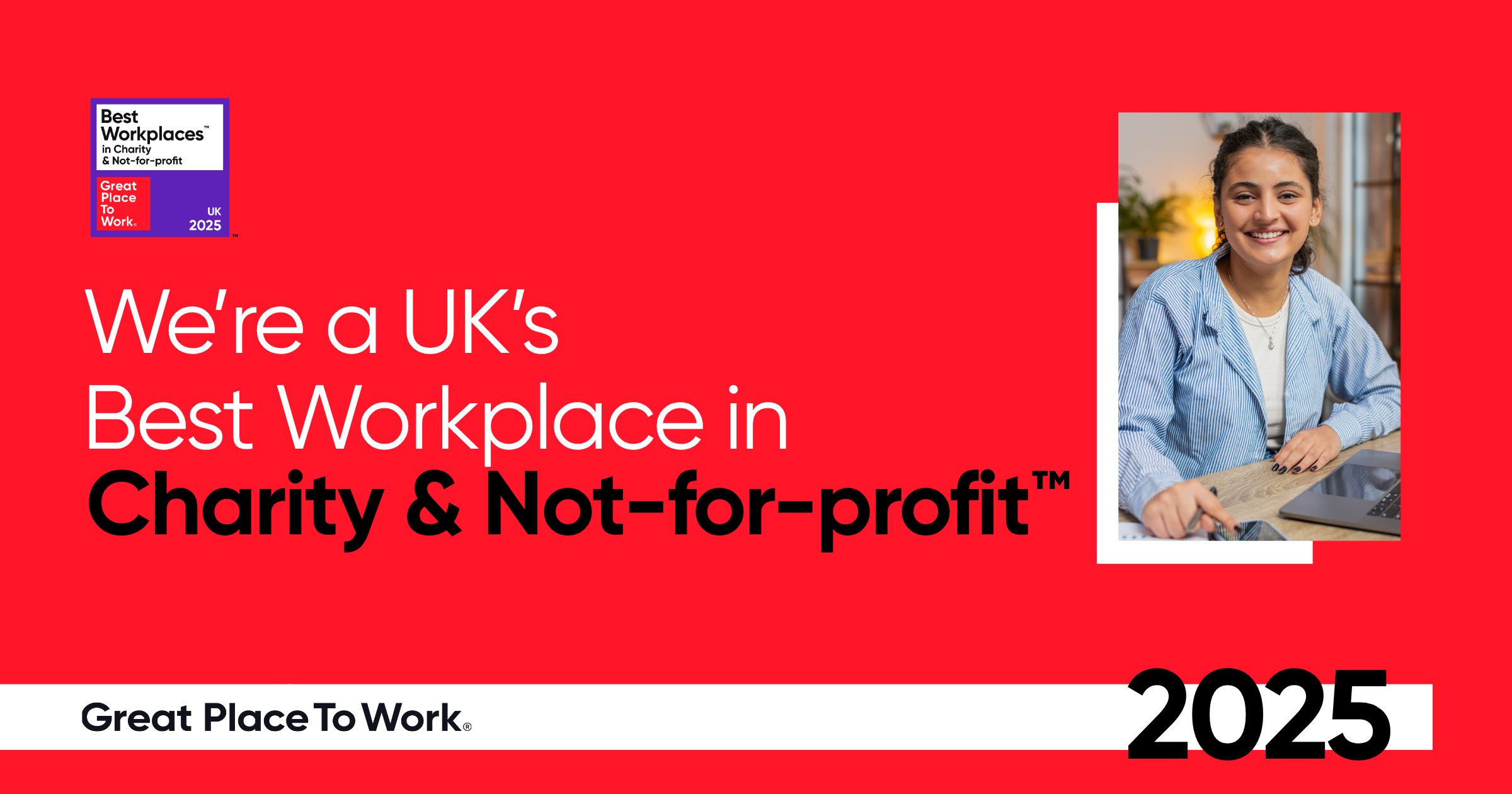Introduction
At Apax, we are proud to announce our partnership with Wellbeing of Women, a leading charity dedicated to improving the health of women and babies across the UK. This collaboration reflects our commitment to providing gender-inclusive support services and recognising the unique challenges faced by women in supported housing environments.
Women experiencing homelessness or mental health challenges often have distinct needs and vulnerabilities that require specialised approaches. Through our partnership with Wellbeing of Women, we are enhancing our ability to provide trauma-informed, gender-sensitive support that addresses these unique needs and empowers women on their journey toward independence and wellbeing.
Understanding Wellbeing of Women
Wellbeing of Women is a charity dedicated to improving the health of women and babies across the UK. For over 55 years, they have been at the forefront of women's health, funding research, supporting healthcare professionals, and advocating for better policies and practices.
The charity focuses on three key areas:
- Pregnancy and birth: Supporting research to ensure safer pregnancies and deliveries
- Gynaecological cancers: Funding research into better detection, treatment, and prevention
- Wellbeing throughout life: Addressing health challenges women face from puberty to menopause and beyond
Through pioneering research, education initiatives, and advocacy efforts, Wellbeing of Women has been instrumental in numerous breakthroughs, including the development of fetal scanning techniques, the HPV vaccine, and improved treatments for various gynaecological conditions.
By partnering with this renowned organisation, we are gaining valuable insights and resources to enhance our support for women in our services, ensuring their specific health needs are understood and addressed appropriately.

Why Women's Health Matters
Women's health encompasses physical, mental, and social wellbeing and is influenced by biological, social, and environmental factors. Despite significant advances in healthcare, women continue to face unique challenges that can impact their overall wellbeing:
- Women are more likely to experience certain mental health conditions such as anxiety, depression, and PTSD
- Many women face gender-based violence and trauma, which can have lasting effects on physical and mental health
- Reproductive health needs require specialised knowledge and approaches
- Social determinants of health often affect women differently than men
- Healthcare systems have historically underrepresented women's experiences and needs
For women in supported housing, these challenges can be compounded by experiences of homelessness, poverty, or social exclusion. Understanding these interconnected factors is essential for providing effective, holistic support that addresses the root causes of health disparities and promotes true wellbeing.
Our partnership with Wellbeing of Women helps us deepen this understanding and enhance our ability to provide gender-responsive support services that recognise and address the unique health needs of women in our supported housing environments.
Our Commitment to Gender-Inclusive Support
At Apax, we believe that effective supported housing must be inclusive and responsive to the diverse needs of all residents. Our partnership with Wellbeing of Women strengthens our commitment to gender-inclusive support through several key initiatives:
- Training for our support team on women's health issues and gender-sensitive approaches
- Development of specialised support pathways for women who have experienced trauma or gender-based violence
- Creation of safe spaces within our supported housing environments where women can connect and build community
- Integration of health education and promotion activities focused on women's wellbeing
- Partnerships with local healthcare providers specialising in women's health
These initiatives reflect our understanding that true inclusion goes beyond equal treatment—it requires recognising and responding to the different needs and experiences of diverse groups. By becoming more gender-responsive in our approach, we enhance the effectiveness of our support for all residents.
One support coordinator shared: "The training we've received through our partnership with Wellbeing of Women has transformed how I work with female residents. I now have a much deeper understanding of the unique challenges they face and feel better equipped to provide support that truly meets their needs."
Supporting Women in Supported Housing
Women in supported housing often have complex histories and needs that require specialised approaches. Our enhanced gender-responsive framework includes:
- Trauma-informed support: Recognising that many women in supported housing have experienced trauma, we implement approaches that promote safety, trustworthiness, choice, collaboration, and empowerment
- Health and wellbeing focus: Working with residents to address physical health needs, including access to appropriate healthcare services and support for women-specific health concerns
- Life skills development: Providing opportunities to build confidence and practical skills in a supportive environment
- Community connections: Facilitating access to women's groups and peer support networks that reduce isolation and build social capital
- Education and employment pathways: Supporting women to access opportunities that build economic independence and self-sufficiency
These approaches are integrated into our personalised support plans, ensuring that each resident receives the specific combination of support that best meets their individual needs and goals.
One resident reflected on her experience: "When I first came to Apax, I felt completely broken. The women's wellbeing group they connected me with has been life-changing. For the first time, I don't feel alone in what I've been through, and I'm learning how to take care of my health in ways I never did before."

Addressing Gender-Specific Challenges
Through our partnership with Wellbeing of Women, we've enhanced our understanding of the gender-specific challenges that can impact women's journey to independence and wellbeing:
- Safety concerns: Many women enter supported housing after experiences of domestic violence or exploitation, making safety a paramount concern
- Parenting responsibilities: Women are more likely to be primary caregivers, which can complicate housing stability and recovery
- Economic barriers: Women often face greater economic disadvantages, including wage gaps and career interruptions
- Health access disparities: Women may face barriers to accessing appropriate healthcare, including reproductive health services
- Stigma and shame: Social judgments about women experiencing homelessness or mental health challenges can create additional barriers to seeking help
Our approach addresses these challenges through practical interventions, such as:
- Enhanced security measures and protocols in our accommodation services
- Family-inclusive support options that recognise parenting responsibilities
- Financial capability building and access to benefits advice
- Healthcare navigation support and partnerships with women-specific health services
- Stigma-reduction initiatives and community education
By addressing these gender-specific challenges directly, we create more effective pathways to independence and wellbeing for women in our supported housing services.
Final Thoughts
Our partnership with Wellbeing of Women represents an important step in our ongoing commitment to providing exceptional supported housing services that truly meet the diverse needs of all residents. By enhancing our gender-responsive approach, we're not only improving outcomes for women in our services but also contributing to broader social change that recognises and addresses gender disparities in health and wellbeing.
The insights and resources gained through this partnership will continue to inform and enhance our services, ensuring that women in supported housing receive the specialised support they need to overcome challenges, build resilience, and achieve independence and wellbeing.
We extend our sincere gratitude to Wellbeing of Women for their expertise and collaboration, and to our dedicated team for embracing this opportunity to deepen their understanding and enhance their practice. Together, we are working toward a future where gender is never a barrier to receiving effective support and achieving positive outcomes.
As we continue this journey, we remain committed to listening to and learning from the women we support, ensuring that their experiences and insights guide our approach and keep us focused on what matters most—creating environments where everyone can heal, grow, and thrive.




